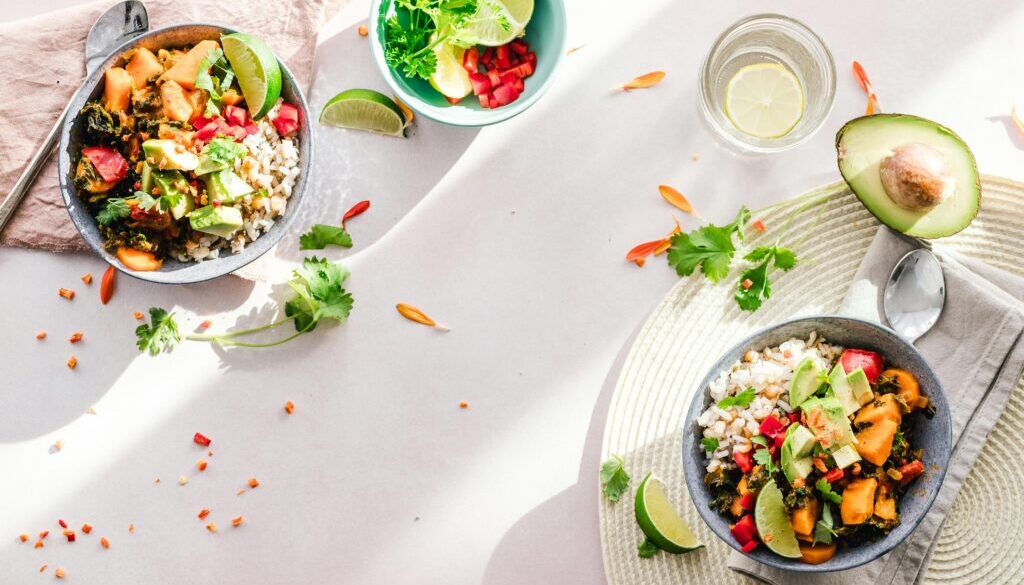Nourish Your Skin: The Vital Role of Diet in Skin Health
The pursuit of healthy, radiant skin often leads us to explore an array of skincare products and treatments. However, amidst the sea of serums and creams, we sometimes overlook one of the most powerful tools in our skincare arsenal: our diet. The food we consume plays a profound role in the health and appearance of our skin, influencing everything from hydration levels to inflammation. In this blog post, we’ll delve into the importance of diet on skin health and discover how making mindful food choices can lead to a complexion that glows from within.
The Link Between Diet and Skin Health:
Our skin is a reflection of our internal health, and what we eat can have a direct impact on its appearance and vitality. The nutrients we consume from our diet provide the building blocks for healthy skin cells, support collagen production, and help combat inflammation and oxidative stress. Conversely, a diet high in processed foods, sugar, and unhealthy fats can contribute to skin issues such as acne, dullness, and premature aging.
Essential Nutrients for Healthy Skin:
To nourish our skin from the inside out, it’s essential to include a variety of nutrient-rich foods in our diet. Here are some key nutrients and their role in promoting skin health:
Antioxidants: Found in colorful fruits and vegetables, antioxidants help protect the skin from damage caused by free radicals and environmental stressors. Foods rich in antioxidants include berries, leafy greens, citrus fruits, and bell peppers.
Omega-3 Fatty Acids: These healthy fats are essential for maintaining skin hydration, reducing inflammation, and supporting overall skin health. Sources of omega-3 fatty acids include fatty fish (salmon, mackerel, sardines), walnuts, flaxseeds, and chia seeds.
Vitamin C: Vitamin C is crucial for collagen synthesis, which helps maintain skin elasticity and firmness. Incorporate foods like oranges, strawberries, kiwi, and broccoli into your diet to boost your vitamin C intake.
Vitamin E: Another powerful antioxidant, vitamin E helps protect the skin from UV damage and supports skin repair and regeneration. Nuts, seeds, avocado, and spinach are excellent sources of vitamin E.
Zinc: This mineral plays a vital role in regulating oil production, reducing inflammation, and promoting skin healing. Include zinc-rich foods such as oysters, pumpkin seeds, lentils, and chickpeas in your diet to support healthy skin.
The Impact of Hydration and Hydration:
In addition to nourishing our skin with nutrient-rich foods, staying hydrated is essential for maintaining skin hydration and overall health. Drinking an adequate amount of water throughout the day helps flush out toxins, plump up the skin, and support proper cellular function. Aim to drink at least eight glasses of water daily, and incorporate hydrating foods such as cucumbers, watermelon, and celery into your diet.
Foods to Limit or Avoid:
While certain foods can promote skin health, others may exacerbate skin issues or contribute to inflammation. Limiting or avoiding the following foods can help maintain a clear, radiant complexion:
Processed Foods: Highly processed foods high in sugar, unhealthy fats, and artificial ingredients can trigger inflammation and worsen skin conditions like acne and eczema.
Sugary Treats: Excess sugar consumption can lead to glycation, a process that damages collagen and elastin fibers, leading to premature aging and dull, sagging skin.
Dairy Products: Some people may find that dairy products exacerbate acne or other skin conditions due to their hormone content and potential inflammatory effects.
Fried Foods: Foods that are fried or high in unhealthy fats can contribute to oily skin and clogged pores, leading to breakouts and dullness.
Conclusion:
Incorporating a balanced, nutrient-rich diet is essential for achieving and maintaining healthy, radiant skin. By nourishing our bodies with a variety of whole foods rich in antioxidants, omega-3 fatty acids, vitamins, and minerals, we can support skin health from the inside out. Additionally, staying hydrated and limiting consumption of processed, sugary, and inflammatory foods can further enhance the health and appearance of our skin. Remember, when it comes to nourishing your skin, what you put on your plate can be just as important as what you put on your skin. Choose wisely, and let your healthy habits shine through in your glowing complexion.
